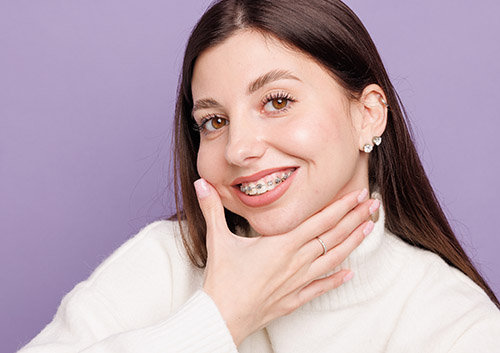Dental Adulting
January 28th, 2026

Now that you’re entering the working world, or heading off to college, or pursuing any of the many adventures awaiting you in adult life, you’re ready to take on more adult responsibilities. And one of those responsibilities is making sure you maintain your dental health.
Luckily, it’s not that hard! Successful adulting often means simply making small proactive choices which add up to big long-term benefits. So, let’s look at a few of the everyday habits of dentally successful adults.
Choose a Healthy Lifestyle
- Eat well.
Just like the rest of our bodies, our teeth and gums need a healthy diet to thrive. Sugar-fueled study sessions and energy drink-filled work hours should be the rare exception, not the norm. A diet rich in vitamins and minerals keeps gums healthy and enamel strong.
- Don’t use tobacco products.
Cigarettes, cigars, pipe smoking, chewing tobacco—any form of tobacco products, especially combined with alcohol use, can greatly increase your chances of developing mouth and throat cancers.
- Talk to your doctor about the HPV vaccine.
HPV (human papillomavirus) can also cause mouth and throat cancers. The American Academy of Pediatrics recommends the HPV vaccine for kids ages 9 through 12. If you haven’t been vaccinated yet, talk to Dr. Anthony Bisconti about the potential benefits of the HPV vaccine.
Practice Good Oral Hygiene
- Brush at least twice a day, for two minutes each time.
Plaque begins to build up within hours after your last brushing. Removing plaque morning and evening also removes the cavity-causing bacteria which live in plaque. These bacteria erode enamel and lead to cavities.
- Floss at least once a day.
Flossing helps remove plaque from your gumline. When plaque accumulates over time, it becomes tartar, a substance so hard that you’ll need a dental professional to remove it. The bacteria in plaque and tartar irritate your gums, and this irritation is the beginning of gum disease. Early stage gum disease (gingivitis) can often be reversed with better brushing and flossing habits—but, even better, help stop gum disease before it starts with daily flossing.
- See your dentist regularly.
If you’ve had the same dentist since childhood, you’ve probably developed a great partnership, typically visiting your dentist twice each year for an exam and a professional cleaning.
Make sure you make space in your busy adult life to keep your smile its healthy, sparkling best by continuing to schedule regular cleanings and exams. This is the best way to clean away any plaque or tartar you may have missed, and, most important, to catch any small problems before they become bigger ones.
Keep Up with Your Orthodontic Care
If you’ve spent several of your teen years in braces or aligners creating a beautiful, healthy smile, you don’t want to see all your hard work go to waste. Retainers are designed to make sure your teeth stay just where they belong for a lifetime.
When retainers aren’t worn as directed, especially when braces or aligners first come off, the teeth can shift back to their old positions. Sometimes going back to your regular retainer schedule can fix any minor movement, but sometimes patients need to go back for repeat orthodontic treatment.
How to avoid orthodontic do-overs?
- If you have a retainer, wear it as scheduled to maintain your alignment and healthy bite.
- Put your retainer in a case when you’re not wearing it. A bent or broken retainer won’t keep your teeth aligned properly and can damage delicate oral tissues!
- If your retainer is damaged, see the dental team at Bisconti Orthodontics in Youngstown, OH ASAP for repair or replacement.
Not so difficult, right? In fact, you’ve probably adopted most of these healthy habits already. Take charge of your dental health now, make good habits a part of your daily routine, and you’ll be prepared to enjoy a lifetime of healthy, attractive, adult smiles!







